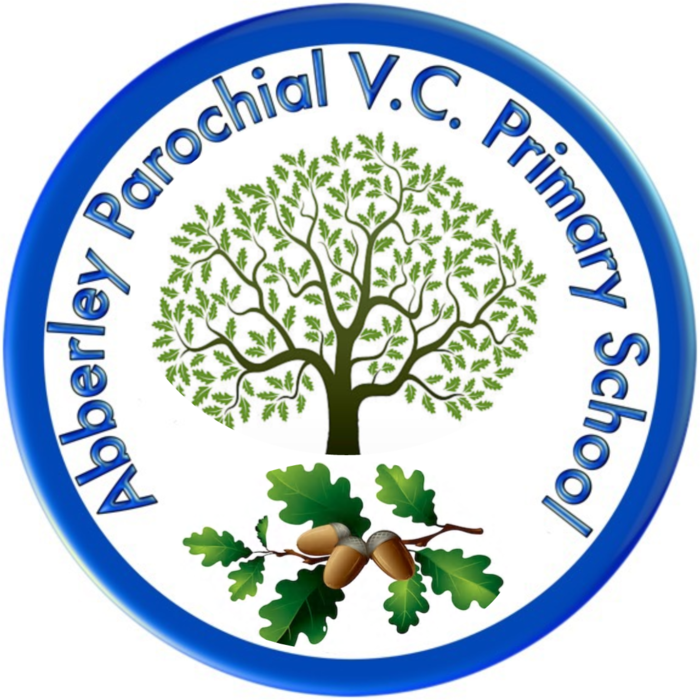English
Early Years
In EYFS, Little Wandle Phonics is taught through a systematic, daily program that helps children develop early reading and writing skills. The program introduces letter sounds (phonemes) in a structured sequence, teaching children to blend these sounds to read words and segment them for spelling. Through fun, interactive sessions, children practice decoding simple words and progress to reading whole sentences. Little Wandle also includes regular assessments to ensure children are building a strong phonics foundation, with extra support provided when needed. This approach ensures every child develops confidence in their early reading journey.
In the Early Years Foundation Stage (EYFS), we foster a love for language through a play-based approach to teaching English. Our focus is on developing key communication, language, and literacy skills, with children engaging in activities that build their speaking, listening, reading, and writing abilities. Through daily phonics sessions, story time, and interactive games, children learn to recognise sounds, letters, and words, laying a solid foundation for reading. Early writing is encouraged through mark making and simple writing, supported by activities that strengthen fine motor skills. By creating a language-rich environment, we ensure every child develops confidence and enthusiasm for English.
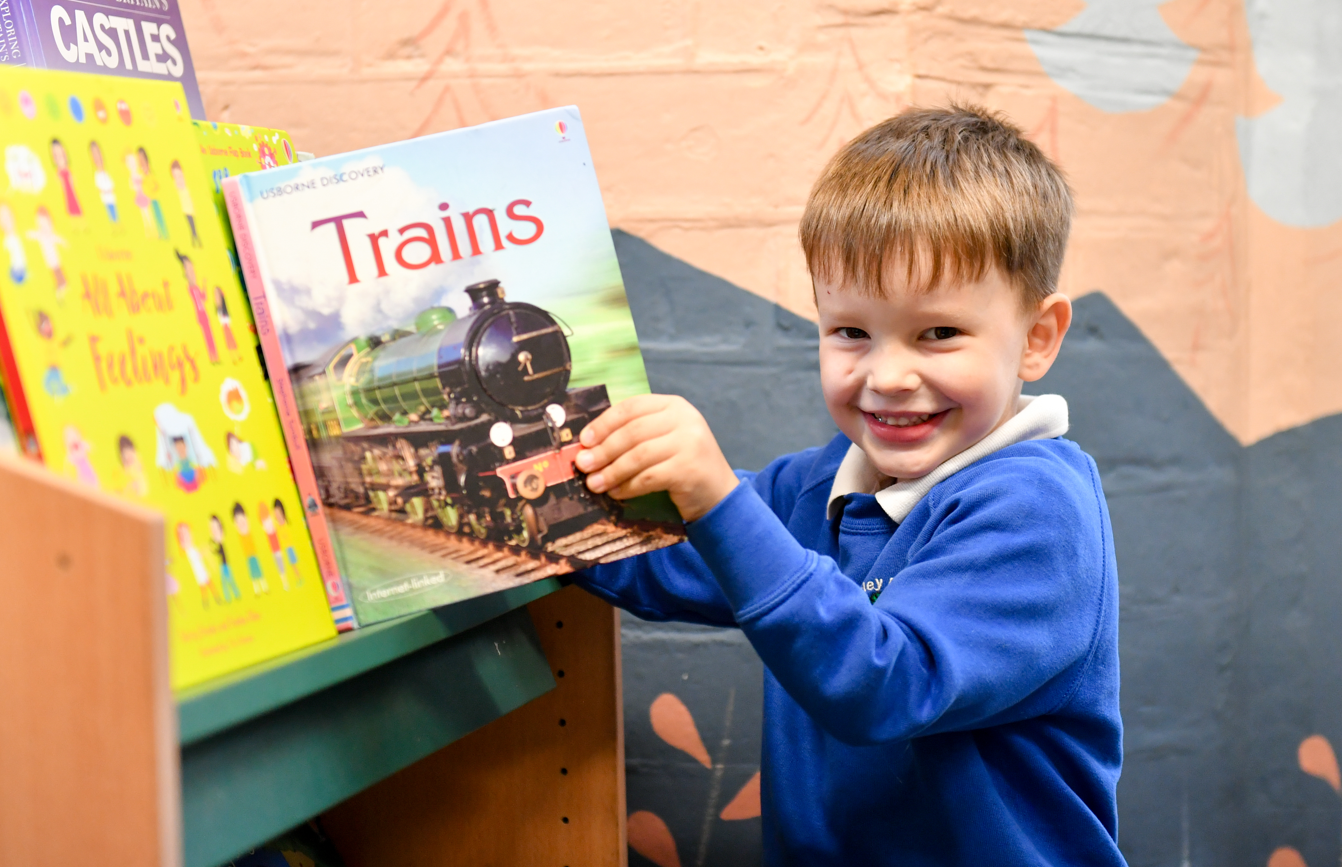
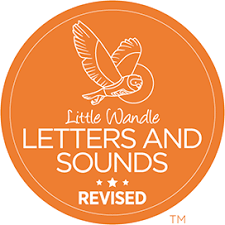
Key Stage 1
Early Reading
Year 1:
In our school, reading is taught through the Little Wandle Phonics programme, which continues seamlessly from EYFS into Year 1. Children progress through the phases, with daily phonics sessions that build on their previous learning, focusing on mastering Phase 5 sounds. This includes teaching alternative pronunciations for graphemes and broadening their reading and spelling skills. Regular practice with decodable books matched to their phonics level helps children apply their knowledge in context, building fluency and confidence. By the time of the Phonics Screening Test in Year 1, our pupils are well-prepared, having developed strong decoding skills and a solid foundation for their continued reading journey.
Year 2:
In Year 2, reading is taught through a recap of the previous phonics phases, ensuring children have a secure understanding of the sounds before moving onto more advanced skills. After reinforcing key phonics knowledge, children transition to the Little Wandle Spelling programme, which builds on their phonics foundation by teaching spelling patterns and rules. Alongside this, the Little Wandle Fluency programme helps children develop reading fluency, focusing on accuracy, prosody, and reading at a fluent speed. Regular practice with carefully selected texts supports this progression, ensuring that by the end of Year 2, children are confident readers with a strong grasp of both phonics and fluency.
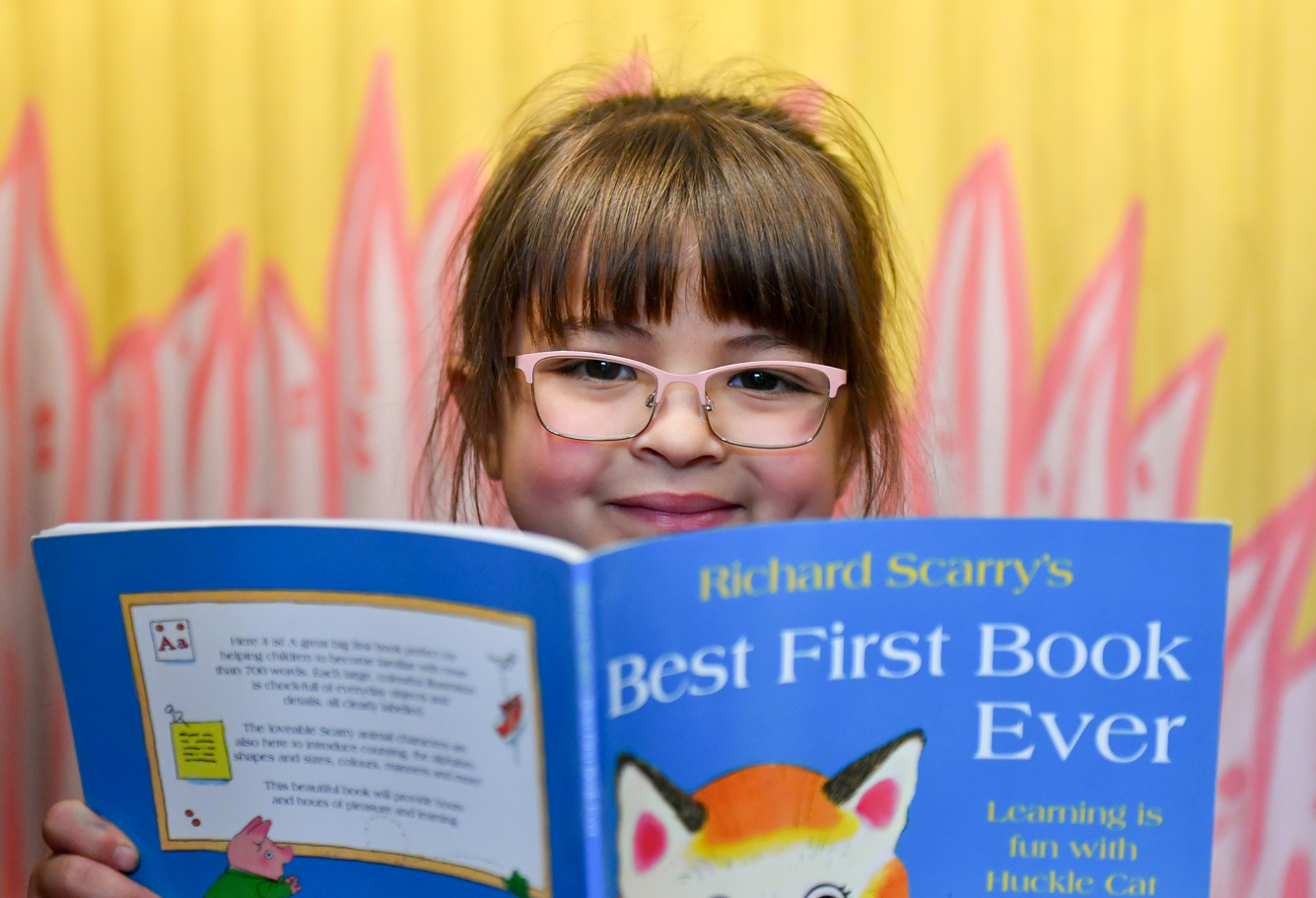
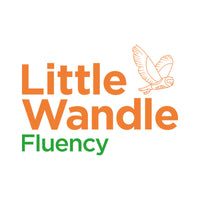
Writing in KS1
In Year 1 and 2, writing is taught through a carefully structured approach that combines regular handwriting practice with a sequence of lessons designed to develop skills across multiple genres. Alongside regular handwriting practice, children follow a well-planned writing curriculum that introduces them to a range of genres, such as stories, recounts, and instructions. Each unit guides children through the writing process, from planning and drafting, helping them to develop their vocabulary, sentence structure, and creativity. This approach equips children with the skills to become confident and versatile writers as well as learning to apply the appropriate grammar, punctuation and spelling rules.
Key Stage 2
Reading in KS2
In Key Stage 2, reading is taught through exposure to a rich variety of texts from diverse genres, including fiction, non-fiction, and poetry. Children engage with a wide range of literature, which broadens their understanding and appreciation of different writing styles. Reading lessons focus on developing key skills outlined in the National Curriculum content domains, such as inference, prediction, summarising, and vocabulary development. Teachers plan lessons around class reading books, using these texts to inspire targeted reading skills practice. This approach ensures that children not only deepen their comprehension but also develop a love for reading across multiple genres.
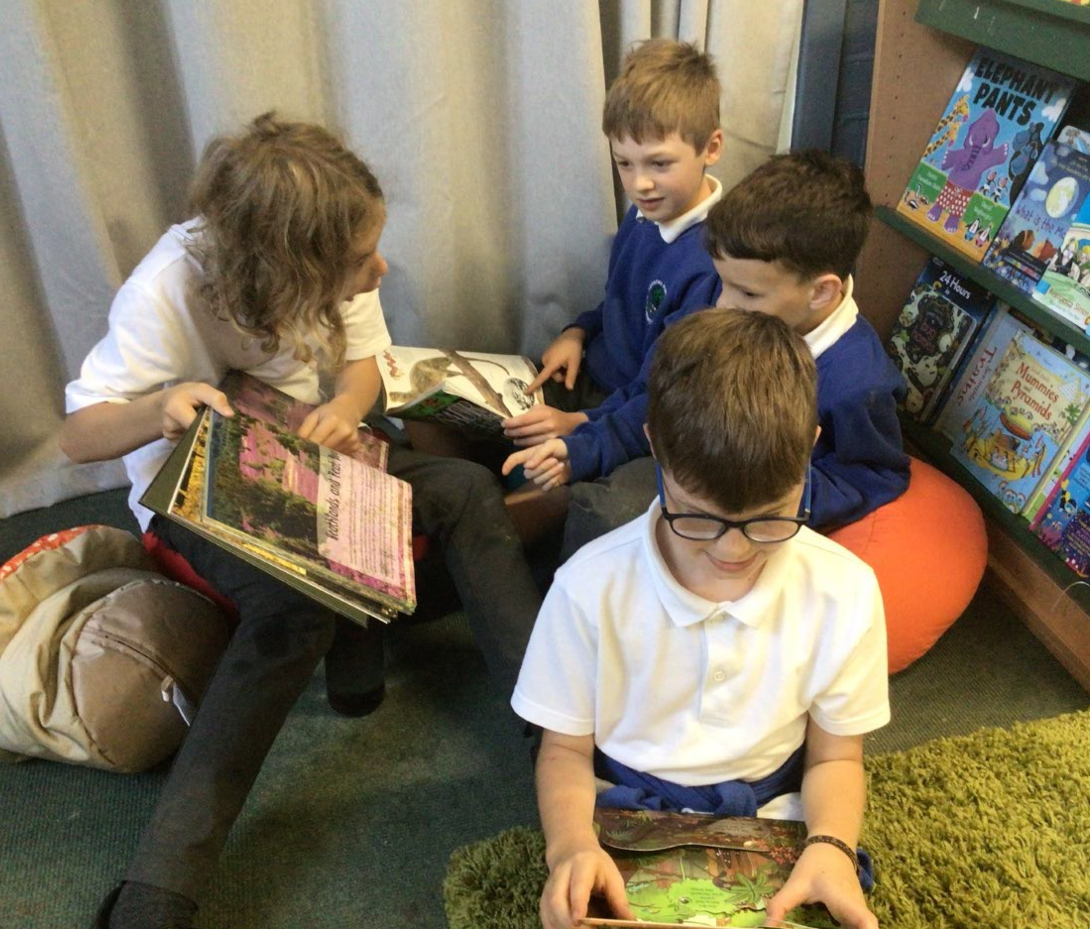
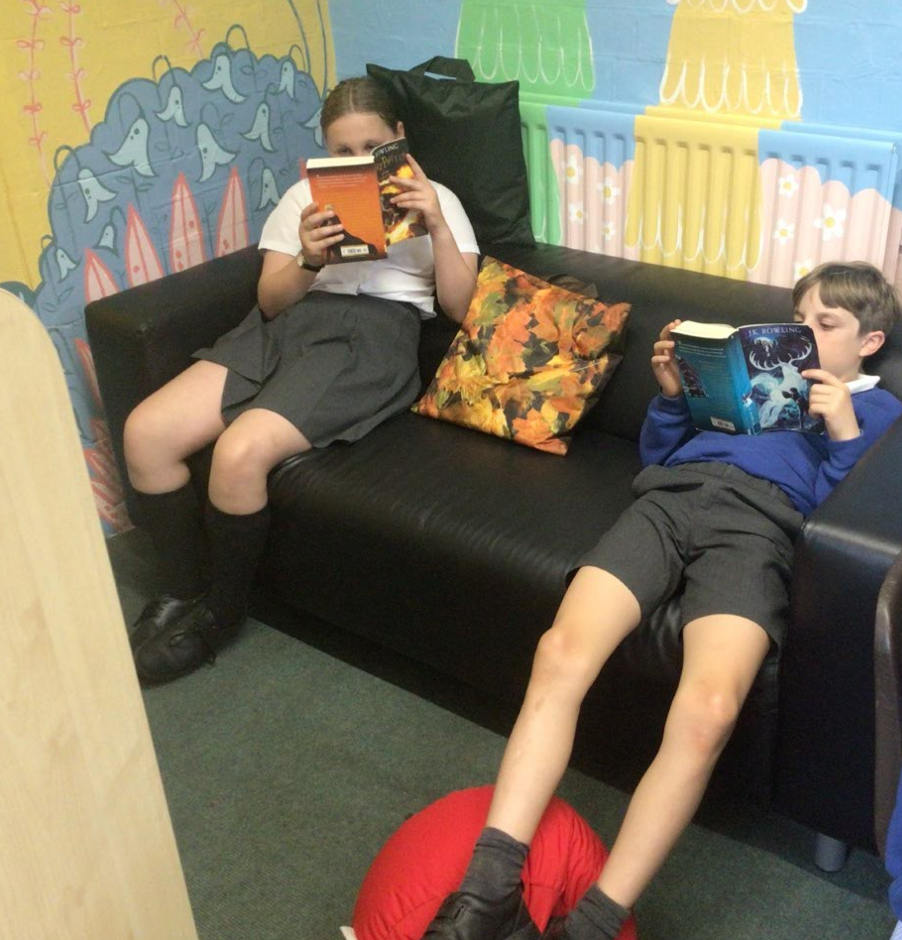
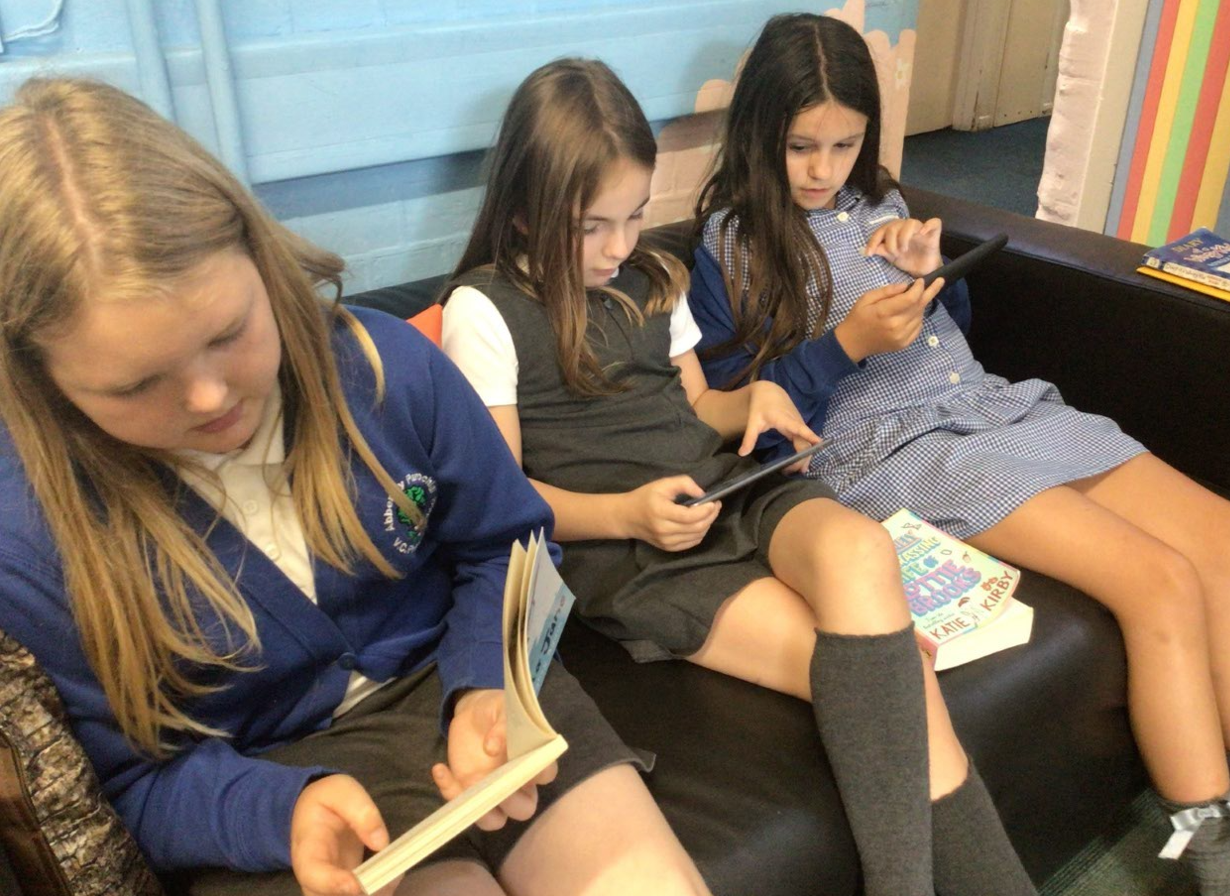
Writing in KS2
In Key Stage 2, writing is taught through a structured sequence of lessons that enable children to gradually build their knowledge and skills across multiple genres. This careful planning allows children to develop the ability to craft creative and mature pieces of writing, with a focus on narrative, non-fiction, and poetry. The teaching of grammar, punctuation, and spelling is seamlessly integrated into these lessons, making it meaningful and purposeful. As children progress, they learn how to apply these technical skills effectively within their writing, enhancing both clarity and creativity. This approach ensures that children become confident and proficient writers, capable of expressing their ideas with precision and flair.
Children have regular opportunities to practise their writing skills across other areas of the curriculum, such as history, science, and geography. This allows them to apply their grammar, punctuation, and composition skills in a range of contexts, deepening their understanding and helping them write with purpose. It also supports the development of subject-specific vocabulary and knowledge while reinforcing their writing abilities.
Accelerated Reader
At Abberley, we use Accelerated Reader to track children’s reading progress, with regular assessments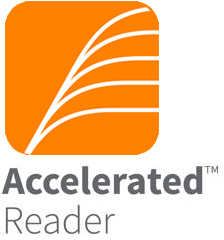 determining each child's reading ZPD (Zone of Proximal Development), allowing them to access a suitable range of books from the library. From Year 2 onwards, after finishing a book, children take online quizzes to assess their comprehension, and their successes are celebrated during weekly assemblies, further encouraging a love for reading. In addition, Accelerated Reader allows us to determine whether children are in need of further reading intervention, which is swiftly timetabled through collaboration with the SENCO and class teacher.
determining each child's reading ZPD (Zone of Proximal Development), allowing them to access a suitable range of books from the library. From Year 2 onwards, after finishing a book, children take online quizzes to assess their comprehension, and their successes are celebrated during weekly assemblies, further encouraging a love for reading. In addition, Accelerated Reader allows us to determine whether children are in need of further reading intervention, which is swiftly timetabled through collaboration with the SENCO and class teacher.
